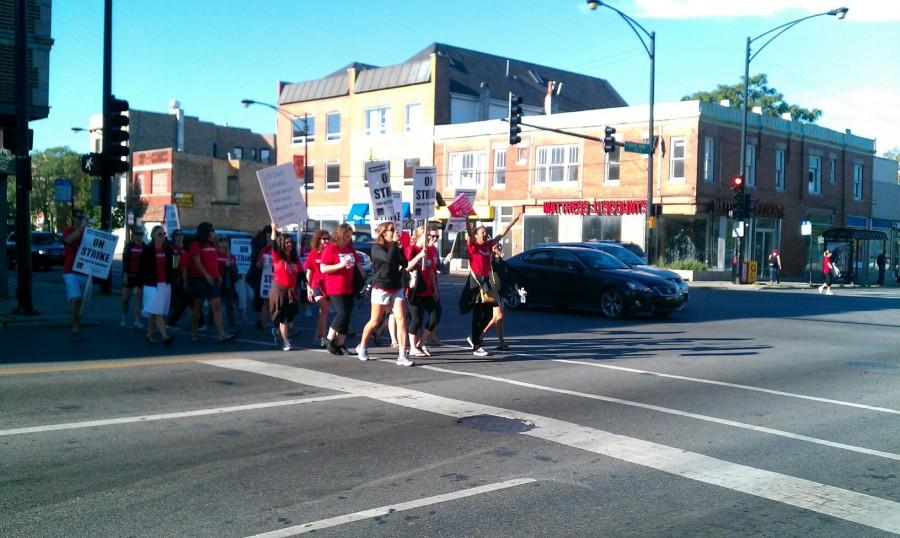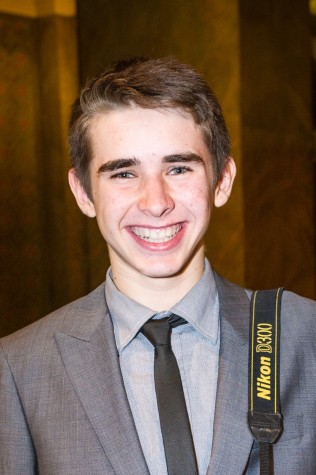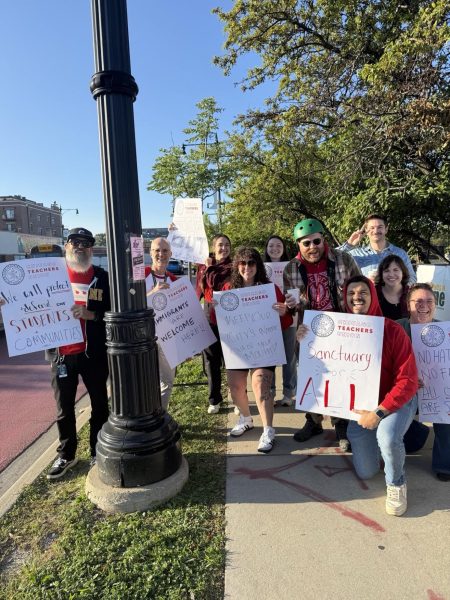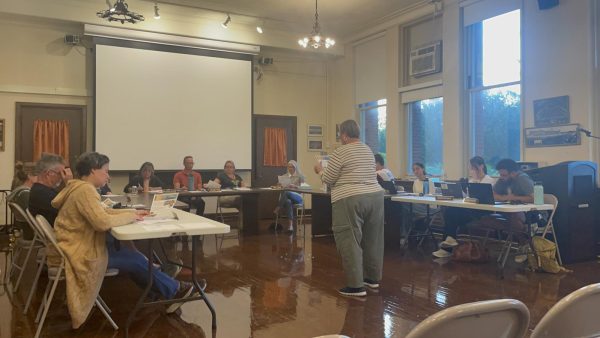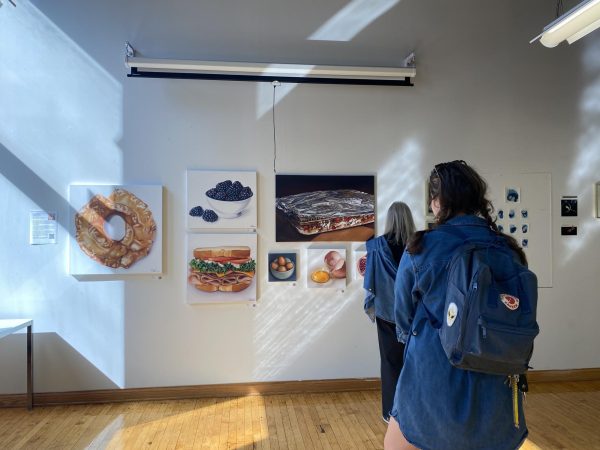Will teachers strike this winter?
Teachers picket near Lake View High School, near the corner of Ashland and Irving Park Road, in September 2012.
In early September 2012, the Chicago Teachers Union (CTU) had its first teachers strike in 25 years, resulting in schools closing after the first week of school.
At the beginning of the 2015-16 school year, there was a lot of speculation from students on whether or not there would be another teachers’ strike. Rumors ranging from the CTU receiving compensation for all of the budget cuts to a teachers’ strike lasting at least a month sparked several questions on what was true about the likelihood of a strike and what was not.
There currently is not a standing decision on whether or not there will be a strike, but there are several factors that contribute to that decision.
In a recent interview, CPS CEO Forrest Claypool told the Chicago Tribune that due to CPS’ debt of nearly half a billion dollars, approximately 5,000 union workers (teachers, paraprofessionals, social workers, etc.) would lose their jobs starting in November.
“For every $100 million you’re in the hole, you’re looking at, that’s equal to roughly 1,000 teachers,” Claypool said. “Other personnel could be part of that, but most of the personnel costs are in our teachers, who we obviously want to keep in classrooms.”
Over the summer, the Board of Education instituted $480 million worth of cuts resulting in the loss of hundreds of teachers, paraprofessionals, and programs in schools.
Norine Gutekanst, an organizing coordinator for the CTU, said the CTU is concerned about the budget.
“Recently, the Board of Education imposed about $200 million of cuts on schools, including cuts to special education, cuts to elementary sports, and just cuts all over the place,” Gutekanst. “At the same time, the board approved a plan to borrow money to pay off banks $220 million, so we’re saying ‘Why are you paying the banks and cutting from schools?’”
The CTU has also been searching for additional sources of revenue from the state government in order to relieve some of the debt imposed by CPS and the state. Mr. Maslanka, a teacher and a union representative for Lane, believes that it will be difficult for CPS to obtain such a large amount of money in just a matter of months.
“CPS is short $480 million this year and they are dependent on Springfield, Board of Education that the organization feels will be significant and beneficial to students and the future of the which is the state government, in bailing them out, but I don’t think they’ll come up with half a billion dollars,” Maslanka said. “Claypool will most likely have to lay off 5,000 teachers around Thanksgiving.”
In addition to the teachers that lost their jobs over the summer, Gutekanst said the CTU is worried that the loss of 5,000 more will severely harm students’ educations.
“We just feel like this threat to lay off 5,000 union people is really a threat against all of the families in the Chicago public area as well because it’s obviously going to impact the quality of education,” Gutekanst said. “So right now, we’re really trying to get the Board to accept some of our contact proposals, especially the ones that we think will lead to better quality schools.”
Along with finding aid to pay off the large amount of debt, the CTU has also made requests and proposals to the Board of Education that the organization feels will be beneficial to the students and the future of the CPS education system.
“We [the CTU] have made proposals that we think are going to make it more possible for our members to be able to do a great job, and the Board has said no to all of them,” said Gutekanst. “We want to have less testing in the school year; we think kids are over tested and we think too much time is devoted to test prep, and the Board has said no to that. We want there to be a full-time nurse in every school, we want counselors to have better working conditions so that they can counsel parents, we want more social workers.”
Some students believe that a strike is unavoidable, but are worried about the consequences they may face after having one.
“I don’t want there to be a strike because I know that will really affect students taking AP classes. We started school almost a month after a lot of other schools, so we’re a month behind on material and that will really hurt us when we take the test and try to cram information last minute,” said Kimberly Zuniga, Div. 679. “However, I believe a strike is inevitable because the teachers and the union need and want what they are asking for, but I’m not sure if the Board of Education will easily comply.”
There is currently no clear verdict on whether or not there will be another strike. Whether or not there will be is a decision that will be made further into the school year, depending on if and when the Board of Education and the CTU come to any agreements regarding school funding and any of the CTU’s proposals.
Like several students and teachers, Zuniga believes that a strike may ultimately be what is best for the future of CPS and the CTU, stating, “A strike would be unfortunate for students, but, if it happens, hopefully it will be beneficial to everyone in the long run.”
Your donations directly fund the Lane Tech student journalism program—covering essential costs like website hosting and technology not supported by our school or district. Your generosity empowers our student reporters to investigate, write, and publish impactful stories that matter to our school community.
This website is more than a publishing platform—it's an archive, a research tool, and a source of truth. Every dollar helps us preserve and grow this resource so future students can learn from and build on the work being done today.
Thank you for supporting the next generation of journalists at Lane Tech College Prep!

